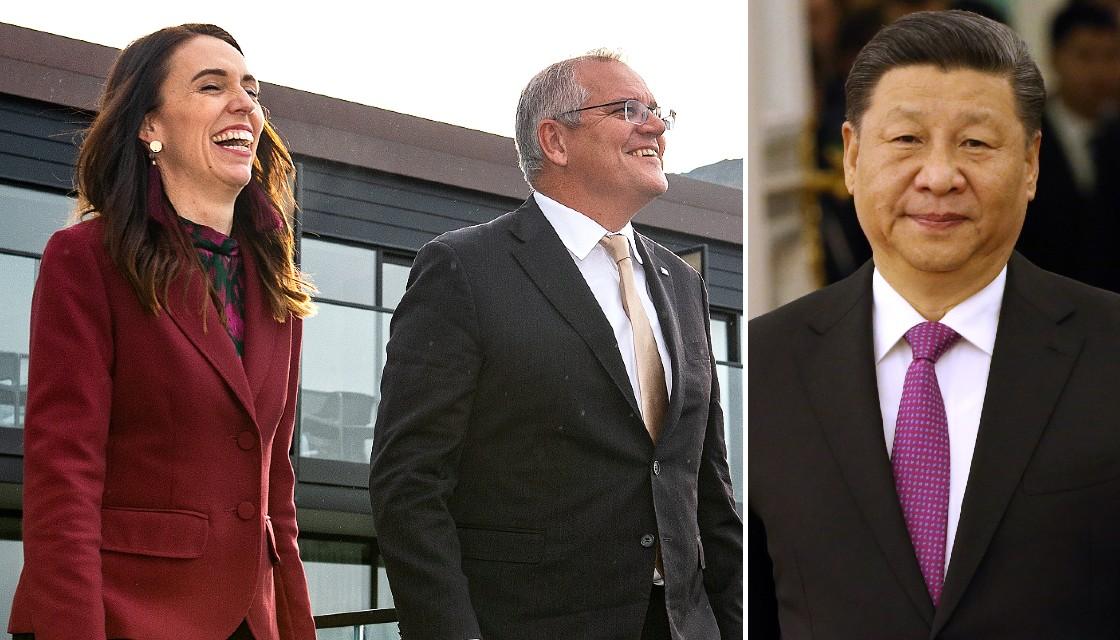New Zealand's Jacinda Ardern is the world leader Australians have the most confidence in, according to a new report, but China's reputation has taken a significant hit.
The annual Lowy Institute Poll was released on Wednesday, capturing "the mood of the Australian public" in the midst of a global pandemic - and as sentiment towards China slides in the wake of COVID-19 and massive trade tariffs being placed on Australian products.

According to the report, 91 percent of Australians have confidence in the Kiwi Prime Minister "to do the right thing regarding world affairs", up 4 points since 2020 and continuing her streak as the world leader Australians put above all others.
New US President Joe Biden rolls in second, getting the backing of 69 percent of Australians. That's up 39 points on the level of confidence shown in former President Donald Trump in 2020.
It's also higher than the 67 percent of Australians who have confidence in their own Prime Minister, Scott Morrison. However, that's up from 60 percent in 2020 and 58 percent in 2019.
Other world leaders Australians have confidence in include German Chancellor Angela Merkel, Japanese Prime Minister Yoshihide Suga and the UK's Boris Johnson.

New Zealand has also topped the Lowy Institute's 'Feelings Thermometer', a measurement of Australians' perceptions about countries, territories and institutions on a scale of 0C - meaning cold feelings - to 100C, meaning warm feelings.
Aotearoa easily beat other countries, recording a warm 87C. The United Kingdom came in second with 76C, followed by Japan, Germany and the Pacific Islands Forum.
Sitting at the bottom of the thermometer at a chilly 32C is China, just below the 34C recorded by Iran.
READ MORE
- Australia complaining to World Trade Organization about China's wine tariffs
- Canon only allows smiling employees into Chinese office
- Australia turns up heat on NZ's relationship with China
- Kiwis increasingly view China as a threat
The icy relations between Australia and China is a common theme in Wednesday's report.
Although he came in above North Korean leader Kim Jong-un, China's Xi Jinping is only supported by 10 percent of Australians, less than half of what he received in 2020 and down 33 points since 2018.
It reflects an overall decline in Australia's sentiment towards China over the last year as the relationship between the two countries has nosedived.
"The majority of Australians blame China for the current tensions in the bilateral relationship," The Lowy Institute Report says. "More Australians see China as a security threat than an economic partner. Confidence in China's President Xi Jinping, already declining, has fallen to a new record low.
"However, Australians do not want regional competition to slide into confrontation. Most still believe we can maintain good relations with both superpowers. A majority of Australians would prefer to stay neutral in the event of a military conflict between China and the US."
For the second year in a row, China is the least-trusted country for Australians, with just 16 percent saying they trust China to act responsibly in the world, down 7 points since 2020.
"The number of Australians holding positive views of China’s trustworthiness has plummeted in three years, halving since 2019 and now at a third of the level in 2018 when a majority of Australians (52 percent) said they trusted China."

Australians have the most trust in their own government to act responsibly, followed by Japan, the UK, India and the US. Australians weren't polled on New Zealand's trustworthiness.
In the event of a military conflict breaking out between the US and China, 57 percent of Australians say their country should remain neutral, 41 percent want Canberra to back the US, and just 1 percent want to support China.
Australians also believe their country should send athletes to the 2022 Beijing Winter Olympics - but only just. The report shows 51 percent in favour, 45 percent against and 5 percent as not sure. There have been calls for a boycott because of China's human rights abuses in Xinjiang and interference in Hong Kong.


